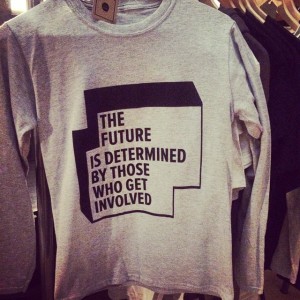Thanks to my Clore fellowship, I’ve spent a lot of time recently talking about what I should do next. To be honest I’m in a right muddle. My good friend J may have nailed it when he sat back at the end of an evening together and told me that I’m clearly having some kind of mid-life crisis. My immediate response was that I’m not that old. But then I came down to earth with a bump and realized I’m not that young either…
Anyway the one thing I feel very clear about is that I want to find roles where I can disrupt the establishment one way or another. That might be about direct action; it is also about exposing some of the damaging assumptions and power relationships that underpin the status quo, in order to give people their voices back, whether that’s in politics, in public services, or indeed the communities in which they live.
Now it’s not often you see people disrupting from within. Yet this week, we’ve had Peter Oborne (former Chief Political Commentator of the Telegraph) taking on the free press, and the Church taking on politics. How unlikely do these skirmishes sound! Yet taken together they are a wake-up call about the corrosive effect consumerism is having on our civic life, and a plea for politics to start recognizing this damage (for two brilliant thinkers on this, check out Michael Sandel’s accessible Reith lectures, and Zymund Bauman’s less accessible Consuming Life).
First of all, Peter Oborne exposed the Telegraph’s willingness to put advertising revenue ahead of good journalism in a quite incredible resignation letter that I really recommend reading in full. Here he shows how the commercialization of the free press has rendered it much less free than it should be. He shows how the suits at the top are complicit in maintaining dysfunctional power relationships. He underlines the sway big business has over public life behind closed doors.
Second, an amazing letter from the Church Bishops to ‘the people and the parishes of the Church of England’. Again, it really is worth reading all 52 pages of it. I love that this has come out of an institution which, by definition, is inextricably bound up with the establishment, and depends on that establishment for its special status, and I wish I’d been a fly on the wall at the meeting when the Bishops signed this letter off.
If you haven’t got time to read the full letter, check out David Mitchell’s excellent piece on why it matters instead. For me, the main argument is that we have let consumerism seep too far into all parts of civic life, including politics, and that it is time to challenge this state of affairs. The letter is also a plea to see ourselves as more than individuals alone – we are not a ‘society of strangers’, as the Bishops put it. ‘‘We are most human when we know ourselves to be dependent on others”. Amen to that, as someone more religious than me might say.
What is most refreshing about these letters is that they were written at all. There are precious few voices within the establishment calling for a move away from the neo-liberal consensus that currently defines both main parties. So Peter Oborne, and the Bishops of the Church of England, for the first time in my life, I salute you.**
** although really Bishops, is it really so hard to give women equal rights???

